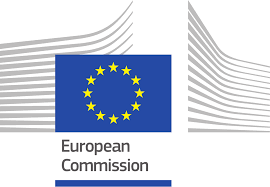PRESS RELEASE : Statement by Executive Vice-President Vestager on amendment to State aid Temporary Crisis Framework in context of Russia’s war against Ukraine [October 2022]
The press release issued by the European Commission on 28 October 2022.
Today, the European Commission has decided to prolong and amend the State aid Temporary Crisis Framework in order to address the evolving needs of Member States to support the economy in the context of the continued invasion of Ukraine by Russia.
Executive Vice-President Margrethe Vestager, in charge of competition policy, said: “Russia’s continued unjustified war against Ukraine and its weaponisation of energy resources has serious effects on Europe’s economy. All European households and companies face extraordinary increases of energy costs. In this context, the Temporary Crisis Framework provides a horizontal tool enabling Member States to support those that need it, using the full flexibility of State aid rules, while preserving a level playing field in the Single Market.
The Temporary Crisis Framework has been designed with a number of objectives in mind. First, we need to enable Member States to support companies that are seriously affected by the current energy prices today. This support must be geared for addressing the current needs and allow a transition to a situation of more stable energy prices in the future – even if likely at higher levels than in the past. Second, we need to ensure that there are clear incentives to reduce energy consumption, as without more energy efficiency, we will increase scarcity, driving prices even higher. Third, we need to continue working on the root causes of the current energy crisis and invest into a future where we are less dependent on fossil fuels. And fourth, we need to protect the level playing field. We must overcome this crisis together and prevent support to companies that don’t need it or that otherwise risks fragmenting the Single Market.
The amendment of the Temporary Crisis Framework adopted today by the Commission is in line with this logic: it gives Member States more flexibility to set up support schemes tailored to the needs of their economy, continuing to incentivise the green transition, while maintaining safeguards to ensure that aid remains targeted and proportionate. At the same time, it also maintains market incentives for those same companies to further reduce energy consumption, since they will have to shoulder also parts of the higher prices. Furthermore, the amendment expands the tools for Member States to accelerate the roll-out of renewables and industrial decarbonisation efforts. Overall, we have prolonged the application of the Framework until end of 2023 in view of the continued crisis, giving Member States more predictability and time to implement support schemes and providing a stable legal framework for companies.
Today’s changes have been discussed intensely with Member States in three rounds of consultations, involving a survey on Member States’ needs and two subsequent consultations on specific drafting proposals. We will continue to work closely with Member States and coordinate our action to make sure our Framework serves all European consumers and continues to support the Commission’s policy initiatives in the field of energy.”



